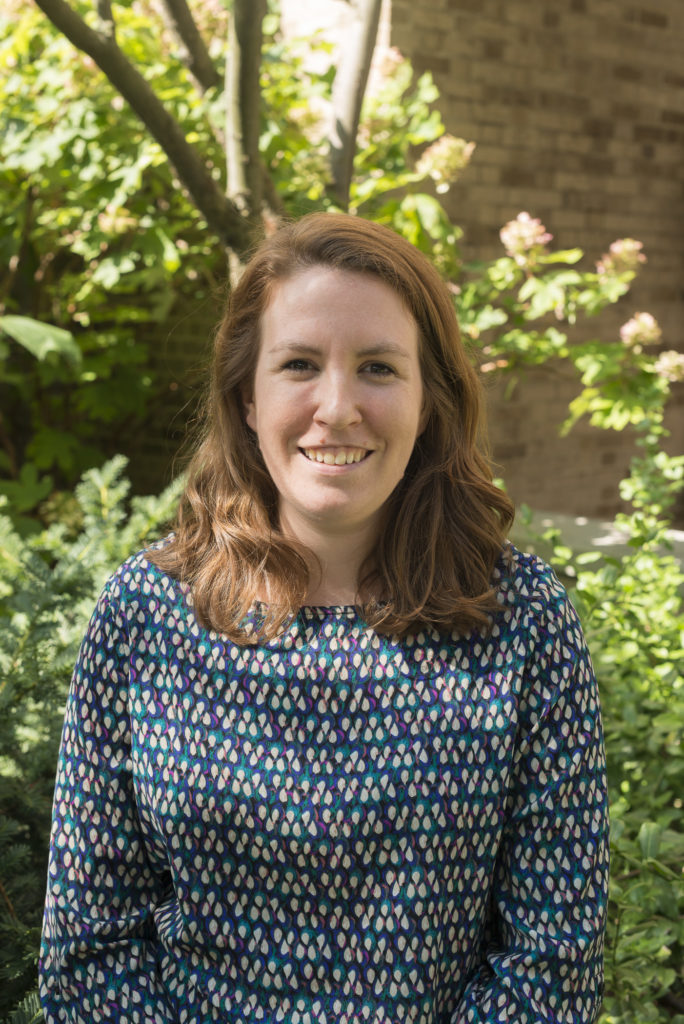 Last month, with support from a GLAM Cross-Pollinator Registration Award, Abigail Shelton attended the Museum Computer Network meeting in Denver, CO. We’re glad to share her thoughts about the conference below!
Last month, with support from a GLAM Cross-Pollinator Registration Award, Abigail Shelton attended the Museum Computer Network meeting in Denver, CO. We’re glad to share her thoughts about the conference below!
Abigail Shelton is an Outreach Specialist for the Mellon Foundation Library-Museum Collaboration Grant project at the University of Notre Dame. The project aims to build a unified digital space for cultural heritage collections at the university and her role is to work in between users and software developers. Ms. Shelton earned an MSLIS from Drexel University in 2018 and also has an M.A. in American History from Binghamton University, SUNY. She previously worked at the American Philosophical Society Library in Philadelphia, PA. You can find her on Twitter at @aecshelton.
Tech should amplify human-ness. #mcn2018
— Abby Shelton (@aecshelton) November 14, 2018
Quoted from Amber Case, “Calm Technology: Design for the Next 50 Billion Things”
So began my first Museum Computing Network (MCN) conference. I was honored to receive the DLF GLAM Cross-Pollinator Registration Award to attend. But as a newly-minted library school graduate making her first foray into the museum conferencing world, I wasn’t quite sure what to expect. What I came away with was a renewed aspiration to empathize, connect, and serve our human users.
If you didn’t walk away from Amber Case’s thought-provoking keynote presentation (quoted above) questioning the use of technology in your own life and the life of your institution, you weren’t really listening. Case set the stage for the conference by exploring the principles of “calm technology.” The underlying idea is that we should design technology that empowers human work and life rather than competing or distracting from it. To do that, however, means that we really need to understand and empathize with our communities. We need to actually talk to them.
And that’s exactly what so many MCN 2018 presenters reported on in their sessions: how to talk to and assess community needs. One session in particular, “Talk to Your Visitors: DIY Human-Centered Research,” introduced a toolbox of strategies for empathizing and understanding user needs. Susan Edwards of the Hammer Museum at UCLA, Michelle Grohe from the Isabella Stewart Gardner Museum, and Kathryn Quigley at the Lawrence Hall of Science, UC Berkeley shared their techniques for evaluating and improving user experiences.
What I appreciated about their approach was that all three started by evaluating small and specific services. For instance, the Hammer Museum wanted to know more about how their theater patrons felt about the process of requesting a ticket for an assigned seat at free events. Instead of attempting to evaluate the visitor’s entire experience at the museum, they drafted very focused questions and talked to 5-6 people for 5 minutes or less before a few events.
I can see how this approach will be useful for my work at the University of Notre Dame. As we test our prototype next spring, I plan to think about how we can target specific features in small testing groups. The idea would be to choose a handful of features that we want to evaluate at a deeper level and ask a small group of users to provide feedback on just those things, rather than on their overall experience.
It’s exciting to see how museums and libraries are reassessing the “techno-utopianism” that has often driven the software development process. Instead of blazing ahead with the assumption that more tech is always better, conferences like MCN 2018 demonstrate that curators, archivists, librarians, and developers are starting to re-center technology as of, by, and for inclusive human communities.
Upcoming opportunities
The GLAM Cross-Pollinator Registration Awards aim to foster communication and conversation among the GLAM communities. In October 2018, as part of an exchange with our partner organizations, affiliates from our partner communities attended the DLF Forum in Las Vegas, Nevada.
Students, faculty, and staff from DLF member institutions are eligible to apply for upcoming opportunities! A registration award is still available for the annual meeting of the American Institute for Conservation of Historic and Artistic Works (AIC) in May 2019. Apply now!
